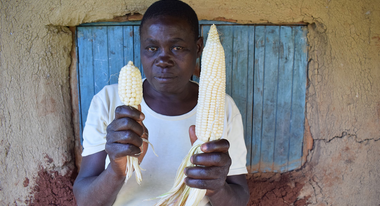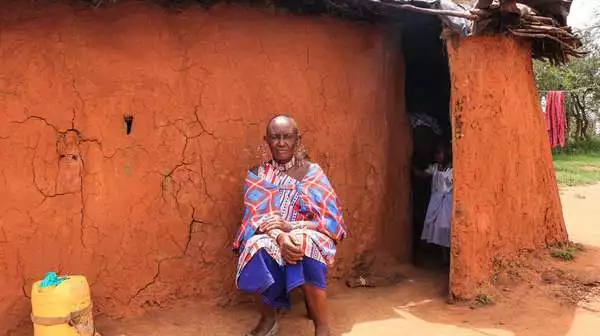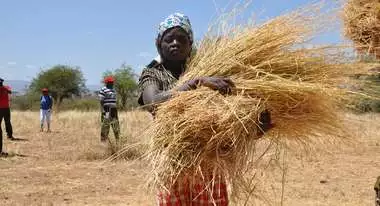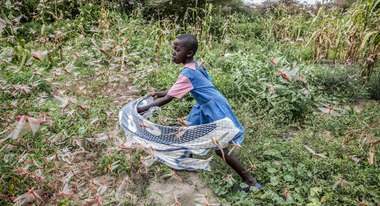The intervals between droughts are becoming shorter and shorter, creating a scarcity of drinking water in Kenya.
Toothpick Company set up one of the 50 Best Small Businesses in Africa
Welthungerhilfe’s Project had supported the set up of the Toothpick Company Ltd. (TCL) and is one of the shareholders. TCL was announced as one of the 50 Best Small Businesses in Africa of the “Good Food for All” competition.
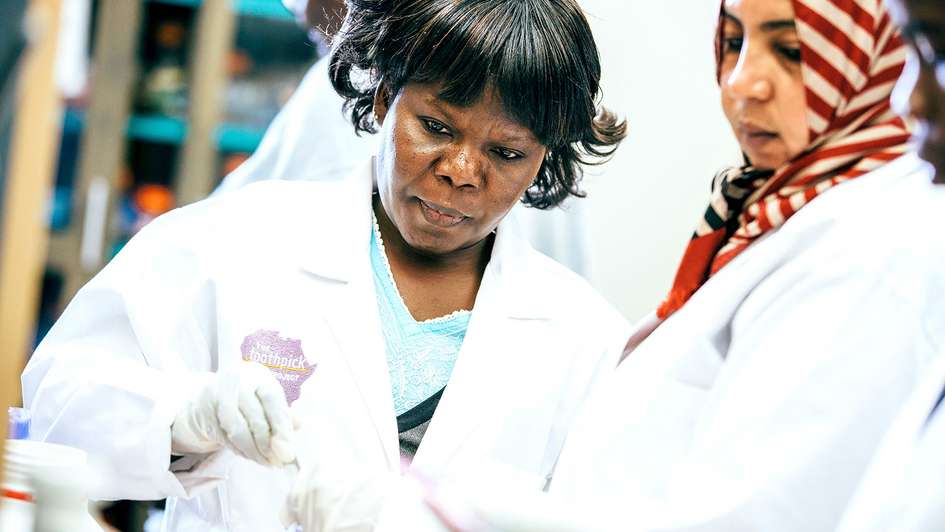
In the “Good Food for All” competition held as part of the UN Summit on Food Systems, fifty out of 2,000 small and medium sized enterprises from around the world were named the best small business - one of them was Toothpick Company Ltd. of Kenya, which was co-founded by Welthungerhilfe.
The winners were selected based on how the company contributes to healthier, more sustainable and equitable diets in its community. It also looked at the companies' future impact on society.
The project, which was funded by Welthungerhilfe, successfully developed a method to fight the parasitic weed Striga. Striga, which is also called witchweed, primarily attacks maize and millet, causing yield losses of between 20 and 100 percent, and is therefore considered the biggest threat to food security in Africa. It is associated with malnutrition, hunger, family and land abandonment.
In 2016, Welthungerhilfe launched the "Toothpick" pilot project in Kenya which included the the set-up of the Toothpick Company Limited that was formally registered in Kenya in 2018. With over 500 demonstration plots in western Kenya farmers became familiar with the technology and were able to test the tool. After three years of field trials, product registration was granted in Kenya in February 2021.
The bio-herbicide, known in Kenya as Kichawi KillTM, is based on a Fusarium fungus. It was developed in research collaboration between Prof. David Sands of Montana State University in the U.S. and Kenya Agriculture and Livestock Research Organization (KALRO). The name derives from the fact that the native strain of fungus is grown on a piece of wood. Initially, toothpicks were used, hence the name: "Toothpick Project”.
A major challenge during development was that Kichawi KillTM was one of the first biological herbicides to be marketed worldwide. As a result, the regulatory pathway was unclear and procedures took longer than expected. When the Covid-19 pandemic broke out, development was delayed even further. The regulatory application was submitted in November 2019, but because of Covid, it was not reviewed and approved until February 2021.
If, as expected, the business performs well, expansion into other Striga-afflicted countries in Sub-Saharan Africa is already being considered for the next years.




